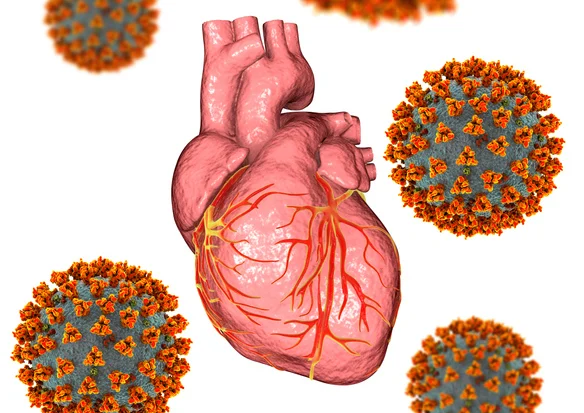Recent research published in the journal Circulation and supported by the National Institutes of Health unveils a concerning revelation: SARS-CoV-2, the virus responsible for Covid-19, can inflict damage on the heart even in cases where it does not directly infect heart tissue. The study sheds light on the mechanisms underlying heart complications observed in severe Covid-19 cases, providing insights that could inform novel treatment approaches.
Focusing on individuals suffering from acute respiratory distress syndrome (ARDS) associated with Covid-19, the study highlights the potential life-threatening consequences of this severe lung condition. Importantly, the findings suggest that the cardiac damage observed in Covid-19 patients may extend beyond the viral infection and could be applicable to other respiratory viruses as well.
Lead researcher Michelle Olive from the National Heart, Lung, and Blood Institute underscores the significance of understanding this link to mitigate cardiovascular complications. By unraveling the complex interplay between severe lung injury and systemic inflammation, the study opens new avenues for addressing the cardiovascular implications of Covid-19.
The research zeroes in on cardiac macrophages, immune cells responsible for maintaining heart tissue health. Analyzing heart tissue samples from deceased Covid-19 patients, the study reveals heightened inflammation in these cells compared to specimens from non-Covid-19 cases. Further experiments on mice corroborate these findings, demonstrating that severe lung inflammation, independent of viral presence, can lead to heart damage.
This pivotal discovery underscores the systemic impact of severe infections like Covid-19, highlighting the potential for widespread inflammation affecting organs beyond the lungs. Moreover, the study suggests a promising avenue for intervention, as blocking the immune response in mice effectively prevented heart damage.
While the efficacy of this approach in humans remains to be tested, the findings offer hope for the development of targeted therapies aimed at protecting Covid-19 patients with pre-existing health conditions or those at risk of severe complications. As the medical community continues to unravel the intricacies of Covid-19’s impact on the body, these insights pave the way for innovative strategies to safeguard cardiovascular health in the face of the ongoing pandemic.






